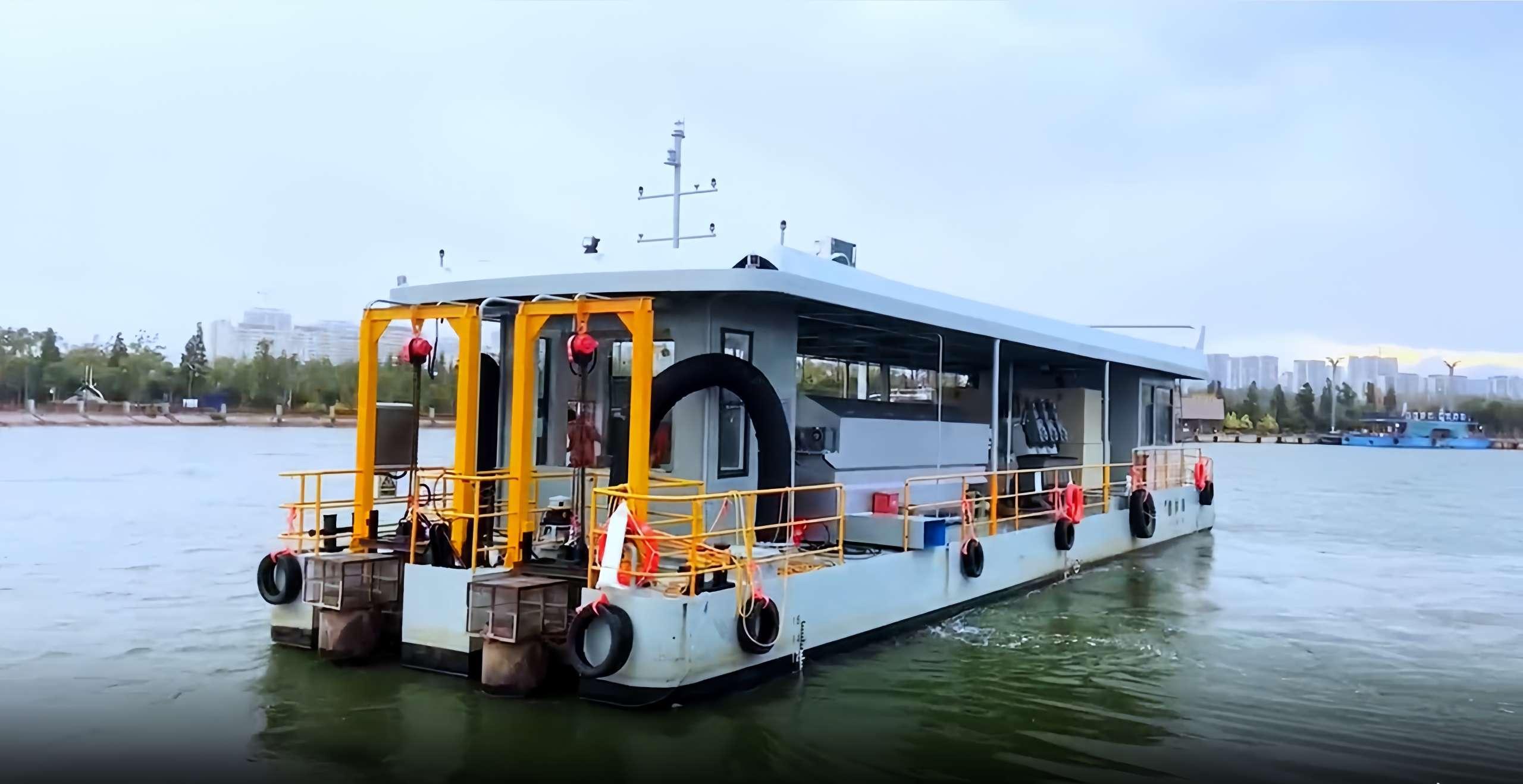CALB Drives Innovation with Dianchi Lake First Hybrid Algae-Cleaning Vessel

Dedicated to promoting ecological sustainability and green development, CALB is at the forefront of advancing marine battery technology. The company is powering Dianchi Lake's inaugural mobile hybrid algae-cleaning vessel, setting a new benchmark for environmentally friendly initiatives.
This groundbreaking vessel, the first of its kind on Dianchi Lake, is equipped with CALB's cutting-edge lithium iron phosphate (LFP) batteries. Known for their exceptional energy density, these batteries deliver superior performance, offering benefits such as high power output, extended operational range, robust safety features, and an impressive cycle life. With a total capacity of 94 kWh, the battery system ensures reliable and efficient energy supply for the vessel's operations.
To maintain peak performance in challenging weather conditions, the vessel incorporates an advanced thermal management system. This system enables rapid heating and cooling, ensuring the batteries operate optimally regardless of external temperatures. Additionally, a dual-channel data acquisition and control system has been implemented to reduce the risk of single-point failures during extreme operations, enhancing the overall safety and reliability of the battery system throughout its lifecycle.
Safety is further reinforced by a cell-level thermal runaway prevention design, which significantly improves the battery system's safety standards. Beyond safety, the high energy density of CALB's batteries allows for a more compact design, freeing up valuable cabin space. This additional space can be utilized for advanced algae-removal equipment, ultimately increasing the vessel's operational efficiency and effectiveness.
By integrating innovative battery technology into this hybrid vessel, CALB is not only supporting ecological restoration efforts but also paving the way for sustainable solutions in marine and environmental applications. This project exemplifies CALB's commitment to driving green innovation and fostering a cleaner, more sustainable future.
Next:How Long Do Solar Batteries Last?Everything you need to know
Previous:How Home Energy Storage Systems Align with Different Users Electricity Consumption Habits
